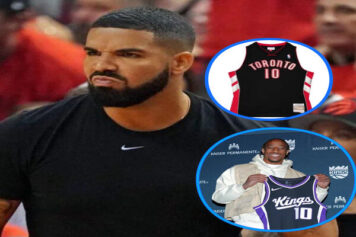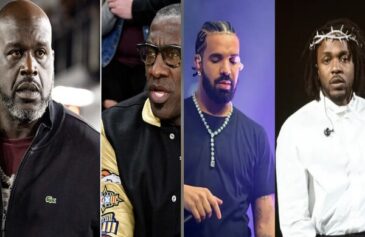(Ed. Note: In Part 1 of our report on media diversity we concentrated on the news. Now we discuss the particulars of music magazine writing and who's really writing the scripts for your favorite shows.)
Don’t Talk About It, Be About It
Earlier this year, Brian Miller, an editor for music site Rap Radar, set off a mini-maelstrom when he commented on what he felt was the over-the-top adulation of rapper Chief Keef’s debut album Finally Rich.
Chief Keef’s music consists of pretty much every black male stereotype you can think of. It is corny, non-sensical and violent to an almost taxing degree. One could assume that everything that Fox News thinks about black people is derived from listening to Keef’s music . Look, I’m only slightly joking here. I wouldn’t be surprised if Keef’s somewhere on a yacht with Roger Ailes right now.
So when writers from sites such as SPIN proclaimed it “one of the best major-label debuts in recent history,” Miller, also known as “B-Dot,” took them to the woodshed. Using the term “cultural tourism,” he lamented the casual and ignorant pose of many music writers who simply don’t have the chops to properly critique the subjects assigned to them. (For context, SPIN gave Keef’s debut an 8 out of 10. They gave Kendrick Lamar’s Good Kid, M.A.A.D City the same rating.) TSL got Miller on the phone to clarify a few things and push back on the pushback.
TSL: Can you explain the term “cultural tourism?”
BM: What I meant by cultural tourism was that there seems to be hip-hop writers and critics who are just visiting the hip-hop scene. They aren’t on the ground doing the hard work, like meeting DJs and going to clubs, and whatnot. They are just guides that are riding the proverbial double decker bus.<
TSL: To be clear, having listened to the podcast dealing with the Chief Keef situation, you weren’t making, necessarily, a racial argument? Is that correct?
BM: No, definitely not. I think that may have gotten lost in translation. Cultural tourism has nothing to do with race. That’s the most ignorant thing ever. It’s definitely not race-based at all. It’s more about understanding a specific culture. For that, it doesn’t matter if you’re black, white, Asian or what have you.
TSL: What do you see as the major problems in music journalism and do you feel that diversity, or lack thereof, is an issue?
BM: What bothers me a lot is that a lot of these publications, like SPIN or Gawker, will have a guy write about hip-hop culture when they have no sort of depth of knowledge regarding the music. There are black and Latino writers that are qualified, but they want to recruit these writers who have no understanding of the game to write about hip-hop, and it makes my blood boil.
Over the years this has been a repeated refrain. It’s like the inmates are running the asylum here, with the people who have the least ability, getting chances to run a magazine simply based on who they know and how they look. A place like music mag XXL, for instance, where the current leadership is legitimately incompetent, and yet, remains entrenched.
Now, if they know their stuff, then hey, nobody is going to have a problem with anything they say. However, if their ignorance is showing, then the public has the right to hit them with a chin check.
BURN HOLLYWOOD BURN
Honestly, I’m not a big fan of the word diversity. It often feels like a crutch. It’s a word that, when clumsily wielded by sycophant politicians and blowhards, too often sounds like Keith Sweat is in the building – begging for inclusion by people who would rather treat them like Walder Frey did Robb Stark at the “Red Wedding.”
Problem is, as soon as you get sick of the word diversity, something like the Emmy nominations always happens.
I have little regards for award shows. I don’t need some hidden-hand judges defining my quality programming. The awesome Parks and Recreation hasn’t won anything over its entire run ; meanwhile, the dog and pony show that is Modern Family has an assigned seat bought from Restoration Hardware at the Emmy table, and every year, eats up all of the quinoa and swordfish.
A couple of weeks ago Emmy nominations were announced and amongst the names revealed was Kerry Washington, who is being recognized for her role as the leader of all upwardly mobile women in ABC’s Scandal. Admittedly, I’m sorta lukewarm on the show (which probably explains why they won’t let me into “Black Twitter”), but I recognize Washington’s talent. In reading about the nominations, I learned that this is the first time since 1995 that a black woman has been up for a Best Actress (Drama) Award – not won it, just nominated. George Constanza was still sleeping under desks in 1995. The Purple Tape came out in ’95. Geez.
Television, even more than movies or music, is about as defiant towards diversity as you can get. Especially unfortunate when you consider that now there are more TV shows and more networks than ever.
The question is why?
Dr. Darnell Hunt is a Professor of Sociology and the Director of the Ralph J. Bunche Center for African-American Studies at UCLA. He speaks across the country on the impact of diversity in Hollywood. His stance is that, basically, things aren’t getting better anytime soon.
TSL: Does a Shonda Rimes (creator of Scandal) make it easier because she’s a proven commodity with two hit TV shows? Does she make it easier for black writers to pitch ideas and be taken seriously?
DH: The reason I say no is because the numbers don’t support it. Shonda Rimes has been successful for quite a while now. Grey’s Anatomy came out some time ago. Scandal has been out for a couple of seasons. Guess what? If you look at the numbers of television pilots, there’s a pipeline. Who’s associated with those pilots? Who makes the pitches? Minority numbers have not changed at all. They’re the same, around nine to10 percent. You would think that all of a sudden Shonda Rimes is creating this sort of lightbulb: “Well, hey, people of color can create successful shows. Let’s create more opportunities for them.” You would think that the numbers have changed. They haven’t.
TSL: How different is the process for non-mainstream writers?
DH: It’s hard for anyone who’s unproven. You may be able to get one of those entry level positions and work your way up. You may be seen or perceived as someone (from the perspective of the show runner), who "gets it" because they have similar experiences, similar cultural background. You’re less of a threat than an Asian American or Latino or African-American who is unknown.
The other thing working against minority talent is there’s almost a typecasting in the industry as it relates to writers, where the presumption is that writers of color are best at writing about racial things – black shows, Latino shows or Asian shows. It’s always a tough sell to demonstrate for writers of color that they are universal and that they can write for everything. The reverse isn’t true. Everyone assumes that white writers can write anything.
TSL: The networks are just following the money, right? What about the responsibility of the audience?
DH: That’s a tough one. There’s never really been a successful audience movement to challenge the industry to change. One of the problems is, the audience does not get to look at all of the ideas that are pitched during pilot season and say, “Oh, I would like to see that pilot. ABC, why don’t you make that?” All the audience gets to do is, once ABC makes a decision about what it wants to show, the audience can vote by either watching or not. By that point, it’s too late, because the audience doesn’t have any input at all into the options the network had in the first place. Guess what? The networks tend to pick the things they feel comfortable with, that either emulate or imitate other shows that were successful.
Though I respect his point, this is where I disagree with Dr. Hunt. I actually do think that viewers matter in this regard. There are swaths of people who behave as if the television is their master. They react passively to whatever programming is set before them. As far as "black" shows, the truth is, quality shows centered on the black experience just haven’t been up to snuff. Recent examples, like NBC spy drama Undercovers, was lacking in smart writing. It's hard to argue that it wasn't deservedly cancelled after a few episodes.
If a crap “black” show is dropped, then so be it; I have zero qualms. At some point, a quality program will surface and then we can take it from there. However, instead of sitting it out, too many people are willing to watch whatever comes on as long as there is a black face on it.
Meanwhile, worthwhile shows like Treme are barely acknowledged.
No one can blame that on racism, so please, let’s not pretend. It’s not just television, either. According to the most recent numbers from website ratings company ComScore, the most popular sites amongst black demographics include MediaTakeout and Worldstar Hip-Hop (with over 4.8 million unique visitors per month). These are what people regard as tabloid sites. (Some of us prefer the term “fecally problematic.”) The numbers wouldn’t be so bad, except that sites like Black Enterprise and Ebony, who attempt to stand upright, get less than half the page views as the aforementioned tabloid sites. How is that not counterproductive?
The usual stepin-fetchit response from do-gooders is to say something like “Well, what about sites like Perez Hilton? They do the same things.”
I’ll let Tommy Lee Jones answer that question on my behalf.
Point being, even the truth has context. Whether or not other sites delve into back-alley brawling, is irrelevant for a community still struggling to grab a major piece in areas beyond sports and entertainment.
* * * **
As is often the case in these discussions, “What now?” usually comes up around this time. Beyond the clichés, what exactly can those who seek diversity do to attain it?
Well, first, support quality shows and websites. This is a business first. Companies out here are grinding themselves to the bone in order to bring a worthwhile product to the forefront. Don’t ignore them just because you think what they’re doing is too “serious.”
Also, if there is something you find objectionable, lobby the companies that advertise with these media companies and flex your money muscle. As is often the case, cash talks. Keep explaining to these mainstream companies that diversity isn’t just a moral issue, but a financial one. The US won’t be a majority white country for much longer. At some point, it will become fiscally negligent to keep the same policies.
These aren’t groundbreaking ideas. The wheel isn’t being invented or anything. Just making a point to say that in 2013, how about we take this wheel and go in a different direction? I’m personally sick of these déjà vu moments. How about you?
*Additional reporting for this piece is credited to Andre Carter and Brandon Lilly.



